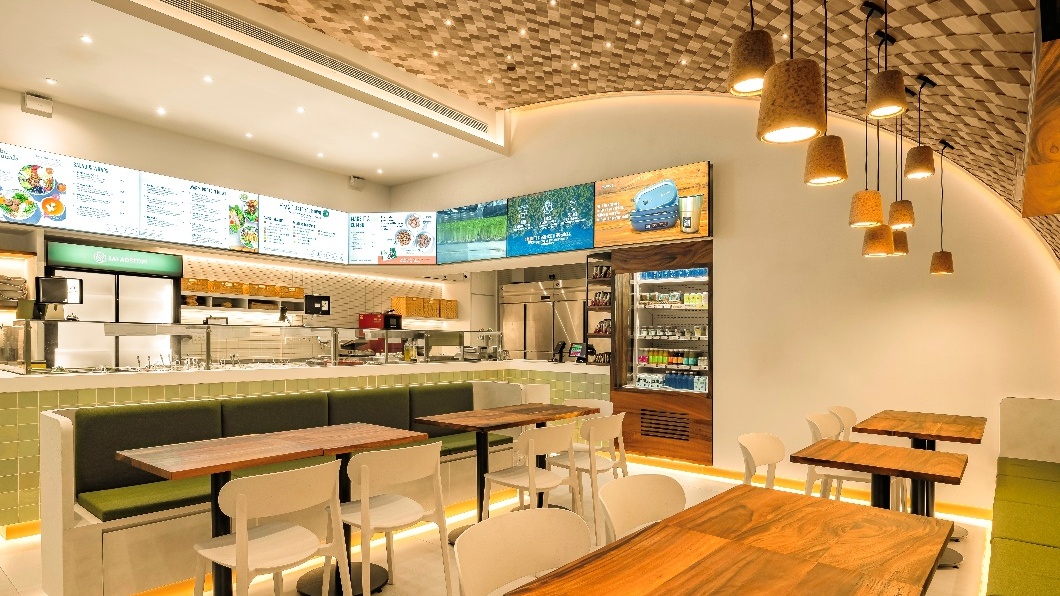Packing a punch with their eco-friendly meal prep boxes


AsiaOne has launched EarthOne, a new section dedicated to environmental issues — because we love the planet and we believe science. Find articles like this there.
Say real, how many of us don't think twice about accepting plastic containers from the cai fan vendor to tabao our daily meals, and then dispose of it once we're done eating?
Did you know that according to the National Environment Agency (NEA), packaging waste that includes plastic accounts for about a third of domestic waste disposed of in Singapore?
Yes, our bad tabao habits are partly responsible for that.
Every bit counts, and that's why the three fitspo musketeers who founded Yummy Bros in 2018 – Ben Leu, Anson Lim and Gerald Tan – are shifting to more sustainable packaging.
The meal prep delivery service cooks up healthy and delish Asian meals (think: kung pow chicken and sambal fish) that aim to meet all our nutritional needs without leaving us feeling guilty.
And now they're making us feel good about the way we treat the environment too.
We speak to Gerald about the advantages (and challenges) of switching up their packaging to a more sustainable option, and why it's important for the F&B industry to do the same.

One of the biggest challenges was to find a well-designed meal box that would best serve our customers. The new packaging had to be:

The most important people in our organisation who played a critical role in helping us validate our choice of new packaging: our customers.
We spoke to several customers individually, let them try orders with the new packaging, and used their feedback to make a final choice.
We also ran polls with our customers and the support for the sustainable packaging was overwhelming.
But we still engaged with customers who voted for plastic to find out what their concerns were, which proved to be very helpful in helping us make a decision too.
I think the biggest benefit for our customers is peace of mind when disposing of the meal boxes. While it is possible to recycle the plastic meal boxes, it can sometimes be inconvenient for our customers to do so.
That's why this sustainable packaging provides more convenience for our customers. They can simply dispose of them and be confident that they are contributing to waste reduction and energy conservation.
For our business, it is definitely more expensive to use more sustainable packaging, but we're happy to do so.
It actually makes our product look more atas! When I first saw our meals packed in them, I was like, "Wow! I love the way it looks!"
My colleagues feel the same way, which adds to their pride in the Yummy Bros brand and product. We're also making an important move towards securing a better environment and planet for future generations.

We believe it's important because of the sheer volume of packaging our industry uses on a daily basis.
Everybody needs to eat, and after the pandemic, a lot of us are now accustomed to takeaways and ordering online. If we take into consideration all the packaging used by local F&B businesses, the amount of material used is massive.
As Singapore continues to progress and prosper, people will start to become more health conscious and watch what they eat.
The fitness industry is also expected to grow and it will become common knowledge that a healthy body is 30 per cent exercise and 70 per cent diet.
That's why meal prep brands, like Yummy Bros, will continue to grow. So, it is increasingly important for us to play a part in switching to a more sustainable packaging option.

SaladStop!'s net zero store at CapitaSpring has been two years in the making and it comes replete with furnishings made from upcycled logs and tiles fashioned from recycled plastic…but what does being net zero really mean? Read our piece to find out more.

Jez Carreon was crowned Singapore's Most Sustainable Bartender this year after he took part in and won the Sustainable Cocktail Challenge hosted by Flor de Caña, a sustainably crafted ultra-premium rum).
The 30-year-old's winning cocktail, New Life, was inspired by the three R's of sustainability – reduce, reuse, and recycle.
Jez also grounds cascara and coffee beans, re-purposing them into part of a coaster handmade from recycled wood.

Vijay Mudaliar, the founder of the award-winning Native bar and restaurant, and plant-based bar Analogue, has long been a revolutionary in showing the world what we can do to be better to our environment.
"When we first started, we used to measure our trash and recycle everything we could," he says.
"We repurpose ingredients, find uses for side cuts and started our own composting programme." Ups lah!
This article was first published in Wonderwall.sg.